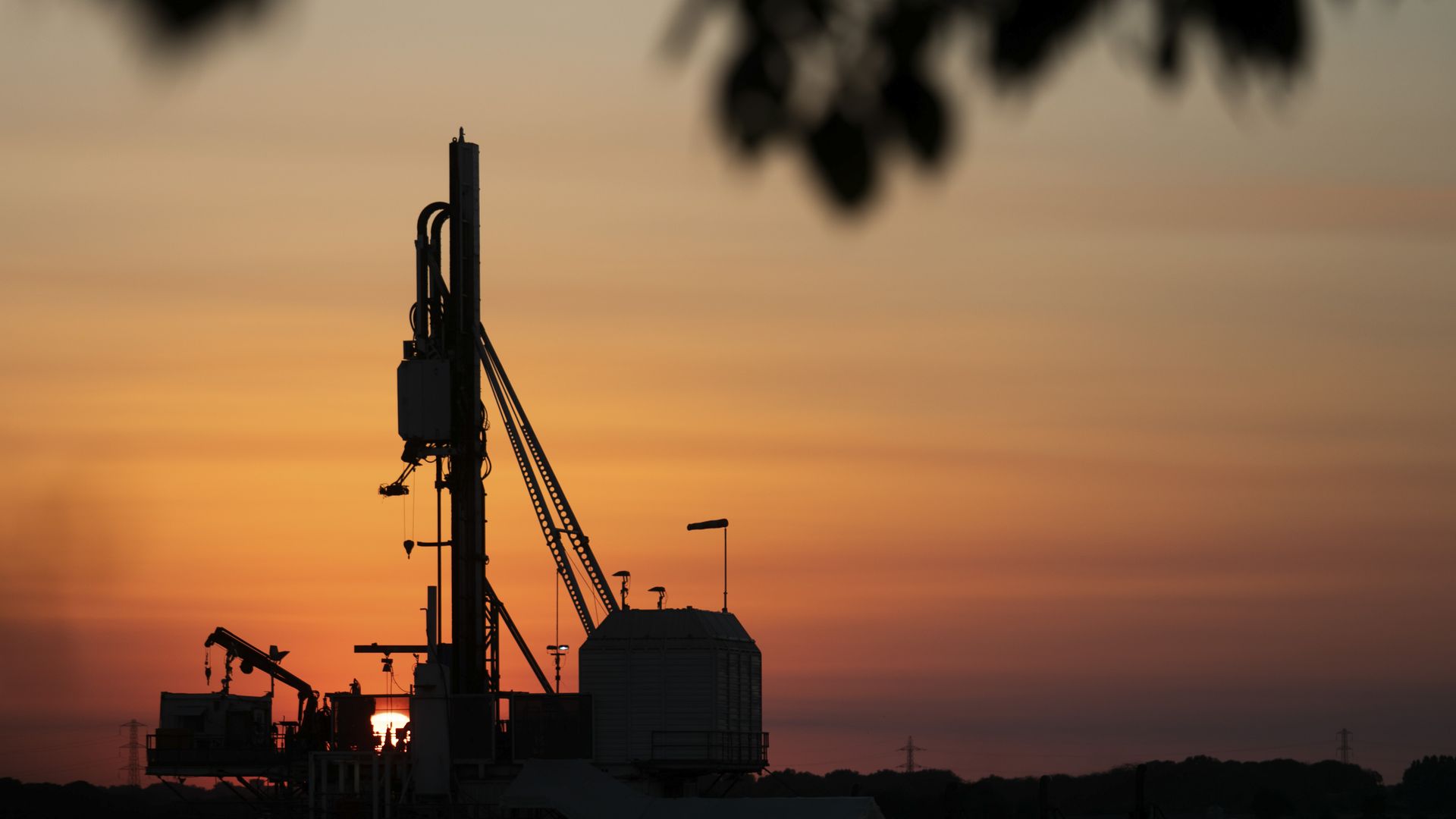Fracking's shaky foundation
Add Axios as your preferred source to
see more of our stories on Google.

Photo: Kristian Buus/In Pictures via Getty Images
A provocative opinion piece in the New York Times made waves over the long weekend. Financial journalist Bethany McLean argues that the U.S. fracking boom rests on a shaky, debt-laden foundation that may be unsustainable.
The bottom line: McLean, who helped uncover the Enron scandal and co-authored the book "The Smartest Guys in the Room," covers a lot of ground.
Her key points are that low interest rates have provided relatively easy access to debt financing and that markets are valuing shale producers based on their acreage, not on a proven ability to make money. McLean writes in NYT:
"It’s all a bit reminiscent of the dot-com bubble of the late 1990s, when internet companies were valued on the number of eyeballs they attracted, not on the profits they were likely to make.
As long as investors were willing to believe that profits were coming, it all worked — until it didn’t."
Why it matters: Advancements in fracking and horizontal drilling over the last decade have sent U.S. oil and natural gas production surging to record levels, which is increasingly making the U.S. a player in export markets too.
Yes, but: The piece got some weekend pushback from some analysts who argued that it overstates the case, or is at least out of date.
Jason Bordoff, head of a Columbia University energy think tank, responded with this Twitter thread on Monday evening. His points include...
"The investment in most shale production is making money now. Shale companies responsible for most production are generating free cash flow. Even if they weren’t, that doesn’t tell us shale will [go] bust."
